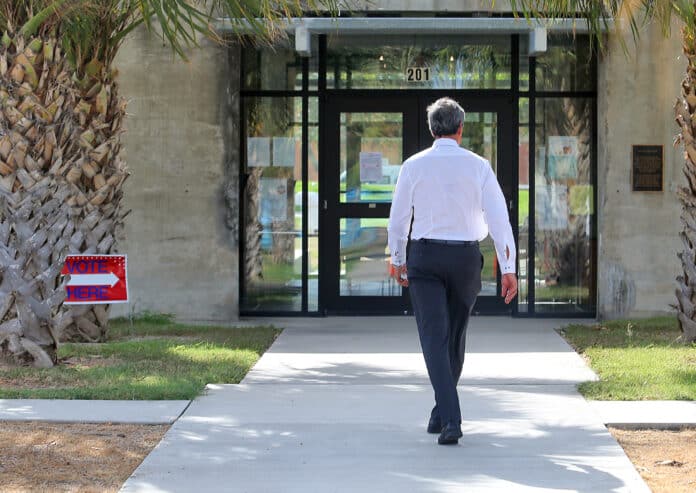
A Travis County judge denied a request from the cities of McAllen and Pharr to issue a temporary injunction against a state law that would force the cities to relinquish control of their city elections to Hidalgo County.
McAllen City Attorney Isaac Tawil said an order issued last week by state District Judge Jan Soifer denied the cities’ request for an injunction, but clarified that there was no final decision in the case.
(Read: McAllen, Pharr challenge state election code)
“The judge denied the temporary injunction, however, we still have a live controversy in the trial court so no final decision has been made,” Tawil said. “So at this point, the next step in the litigation is to proceed to prepare the case for a full-blown trial.”
The cities argue in the lawsuit that it’s unconstitutional for the state election code to allow 1% of voters in the previous election to force the cities to turn over control to the county if they request it in a petition.
The two cities filed the suit after having received such petitions.
On Dec. 23, McAllen received a petition with 34 verified signatures, surpassing the minimum of 20 verified signatures since only 1,907 people voted in the last municipal election in 2019.
The city of Pharr received a petition Dec. 17 with 31 verified signatures.
During a Feb. 10 hearing on the case, an attorney representing the cities, C. Robert Heath, argued that the statute, Section 31.0925 of the election code, was unconstitutional because its language specifically targeted Hidalgo County and no other counties in the state.
He also argued it was unconstitutional that the law allowed a petition with a small percentage of voters to take action that should be reserved for the legislative body, in this case being the city.
(Read: McAllen and Pharr await decision on control of elections)
As an example of the possible damage to the cities, Heath pointed out that McAllen and Pharr spent about $300,000 and $160,000, respectively, for their own election equipment.
However, an attorney for the Texas Attorney General’s office, Kathleen Hunker, argued the cities did not have standing to sue the Texas secretary of state, arguing they had not demonstrated that they would suffer a concrete injury in the future because of the statute.
She also argued there was no delegation of authority through the petition because this was not an example of a policy being created but simply a choice between two regulatory regimes in place.
Although the temporary injunction was not granted, Tawil said McAllen is not making any preparations to turn over its elections to Hidalgo County at this time.
“At this point on the calendar, that isn’t the case and we’re going to proceed to prosecute the lawsuit and, we believe, ultimately show that the statute is unconstitutional,” he said.
It is unclear how that might later affect their pivotal May general elections which are fast approaching.
The elections, scheduled for Saturday, May 1, will decide who will be the city’s next mayor and who will occupy four other seats on the city commission.
The court has not yet set future dates in the case.



